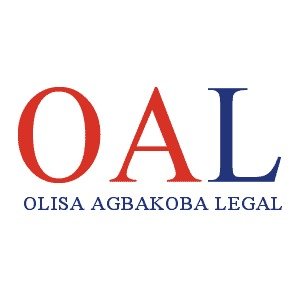Best Art & Cultural Property Law Lawyers in Apapa
Share your needs with us, get contacted by law firms.
Free. Takes 2 min.
List of the best lawyers in Apapa, Nigeria
About Art & Cultural Property Law in Apapa, Nigeria
Art & Cultural Property Law in Apapa, Nigeria focuses on the regulation and protection of art and cultural assets. This legal field encompasses the preservation of national heritage, the prevention of illicit trade, and the management of property rights related to artworks and cultural artifacts. In Apapa, which stands as a vibrant hub of cultural exchange and artistic expression, legal frameworks ensure the safeguarding of cultural legacies and promote the ethical handling of art and property matters.
Why You May Need a Lawyer
There are several common situations where seeking legal advice in Art & Cultural Property Law may be necessary:
- Acquisition or Sale of Art: Legal guidance ensures compliance with local laws in transactions involving art pieces.
- Ownership Disputes: Lawyers can help resolve conflicts over the rightful ownership of cultural property.
- Export/Import Compliance: Ensuring artworks and cultural goods meet necessary legal and regulatory standards.
- Restitution Claims: Assistance with claiming restitution for stolen or illegally appropriated cultural property.
- Intellectual Property Rights: Protecting copyrights, trademarks, and other intellectual property rights related to artworks.
Local Laws Overview
In Apapa, Nigeria, several key legal provisions pertain to Art & Cultural Property Law:
- The National Commission for Museums and Monuments Act regulates the management and protection of national heritage sites and artifacts.
- The Copyright Act offers protection to creators of artistic works against unauthorized use.
- The Customary Laws and Traditions impact the handling and distribution of cultural artifacts within communities.
- Import and export laws define the legal framework for the cross-border movement of cultural property.
- The Criminal Code addresses illegal trade and the handling of stolen cultural goods.
Frequently Asked Questions
What constitutes cultural property under Nigerian law?
Cultural property includes historical monuments, works of art, manuscripts, books, and artifacts of archaeological or ethnological interest.
How do I verify the authenticity of a cultural artifact?
Authenticity can be verified by obtaining provenance documentation, expert appraisals, and verification from the National Commission for Museums and Monuments.
What legal steps are involved in the restitution of a stolen artifact?
This involves documenting ownership, filing a claim with relevant authorities, and engaging in diplomatic channels or legal proceedings for restitution.
Can I legally export cultural artifacts from Nigeria?
Exporting cultural property typically requires a permit from the appropriate governmental bodies, ensuring compliance with local and international laws.
How are intellectual property rights protected in Nigeria?
Through the Copyright Act, which grants artists and creators rights over the reproduction, distribution, and public performance of their works.
What penalties exist for the illegal trade of cultural property?
Penalties can include fines, imprisonment, and restitution obligations, as defined by the applicable criminal laws.
How can ownership disputes over cultural property be resolved?
Disputes can be resolved through mediation, arbitration, or litigation, depending on the complexity and nature of the dispute.
Are there tax implications for selling art in Nigeria?
Yes, there might be tax obligations such as value-added tax (VAT) that need to be fulfilled when selling art.
What is provenance, and why is it important?
Provenance is the history of ownership of an artwork or artifact. It is crucial for establishing authenticity and legal ownership.
What should I do if I suspect an artifact is illegal or stolen?
Report your suspicions immediately to the National Commission for Museums and Monuments and consult a lawyer for guidance.
Additional Resources
Below are some resources that may be helpful for someone seeking legal advice in Art & Cultural Property Law in Apapa, Nigeria:
- National Commission for Museums and Monuments: Offers regulatory guidance and resources on cultural heritage protection.
- Nigerian Copyright Commission: Provides information on intellectual property rights and enforcement.
- Customs Service: For questions pertaining to the legal export and import of cultural goods.
- Art Law Centres or Legal Clinics: Some universities or NGOs may offer specialized legal clinics focusing on art law.
Next Steps
If you require legal assistance in Art & Cultural Property Law, consider taking the following steps:
- Research and contact an experienced lawyer specializing in art and cultural property law.
- Prepare documentation related to your inquiry, such as ownership records, contracts, or correspondences.
- Schedule a consultation to discuss your concerns, understand your rights, and explore your legal options.
- Follow through with recommended legal actions or procedures advised by your lawyer.
Lawzana helps you find the best lawyers and law firms in Apapa through a curated and pre-screened list of qualified legal professionals. Our platform offers rankings and detailed profiles of attorneys and law firms, allowing you to compare based on practice areas, including Art & Cultural Property Law, experience, and client feedback.
Each profile includes a description of the firm's areas of practice, client reviews, team members and partners, year of establishment, spoken languages, office locations, contact information, social media presence, and any published articles or resources. Most firms on our platform speak English and are experienced in both local and international legal matters.
Get a quote from top-rated law firms in Apapa, Nigeria — quickly, securely, and without unnecessary hassle.
Disclaimer:
The information provided on this page is for general informational purposes only and does not constitute legal advice. While we strive to ensure the accuracy and relevance of the content, legal information may change over time, and interpretations of the law can vary. You should always consult with a qualified legal professional for advice specific to your situation.
We disclaim all liability for actions taken or not taken based on the content of this page. If you believe any information is incorrect or outdated, please contact us, and we will review and update it where appropriate.









